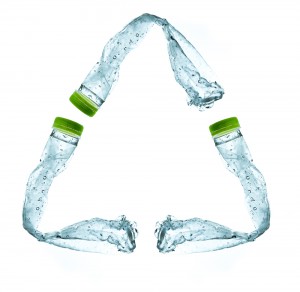Recycling H2O the Effect of Western Drought

Most Americans living outside of California’s drought-stricken zone have no idea what a guilt-inducing experience something as innocuous as taking your morning shower can be. To the relief of many, California has reversed its stance on recycling water and those who choose to reuse their water can once again shower without shame.
In order to combat the tightened water restrictions intended to aid in conserving this precious resource, millions of Californians have taken to recycling their gray water for use in their gardens and landscaping.
Gray Water vs. Black Water
Gray water is the name given to the water that runs down the shower or bathtub drain, the bathroom sink and even the washing machine. By contrast, the water that gets flushed down toilets or runs down kitchen sinks is called black water.
While gray water is deemed useful for recycling, black water is piped right out of the home and sent directly to the wastewater treatment facility.
Although gray water is still not considered fit for human consumption due to the disease causing pathogens that can be ingested, it is deemed adequate for use in vegetable gardens. The only provision is that any untreated water does not come into contact with root vegetables that will be ingested. What that means to the average home gardener is that untreated gray water is perfect for tomatoes, peppers and peaches, but should be avoided on any potatoes, carrots or beets.
Different Levels of Recycling Systems
All water recycling systems are not built the same. There are different levels of recycling available to homeowners, ranging from a simple method that allows laundry runoff to be piped right out to the landscaping that may cost no more than $200 to much more advanced systems that involve filtration and automated pumps that can easily run upwards of $30,000.
The amount of water that could be saved through recycling would be consequential if utilized on a widespread basis, so the environmental implications are noteworthy. A UCLA study conducted in 2009 estimated that if every home in Southern California alone recycled their gray water, it would be enough to supply the whole region’s residential landscaping needs.
The Limitations of Recycled Water
Recycling still has its limitations. For example, untreated gray water cannot be used to irrigate lawns. One of the requirements is that this water is not to be used where people can come into contact with it. The water pipes have to run below any soil or mulch, which renders watering the lawn and shrubbery unfeasible.
As water recycling takes hold in states like California and Arizona, with at least 18 other states catching on to the trend, the technology will improve, making recycling a more mainstream prospect. That’s positive environmental news as well as positive economical news.
The Clear H2O Method

Assess
AWWT conducts preliminary assessments of your systems, facility, and processes to determine productive methods for wastewater removal, management, and treatment.

Control
Through a patented technology, AWWT will implement the most effective treatments based on our investigatory findings and your wastewater management needs.

Safeguard
Collectively we will achieve and maintain “green and clean” solutions through protection and management planning of your future wastewater treatment methods.
Read blog

"San Francisco Wants To Lead The Future In Water And Wastewater Resources"
Few organizations are in a better position to affect our approach to c...Read More >>

"Harvey Leaves Challenges In Texas, From Drinking Water To Rent Payments"
Harvey is finally out of the picture — but the storm's dev...Read More >>

"The Water Cycle"
Earth's water is always in movement, and the natural water cycle, also...Read More >>
